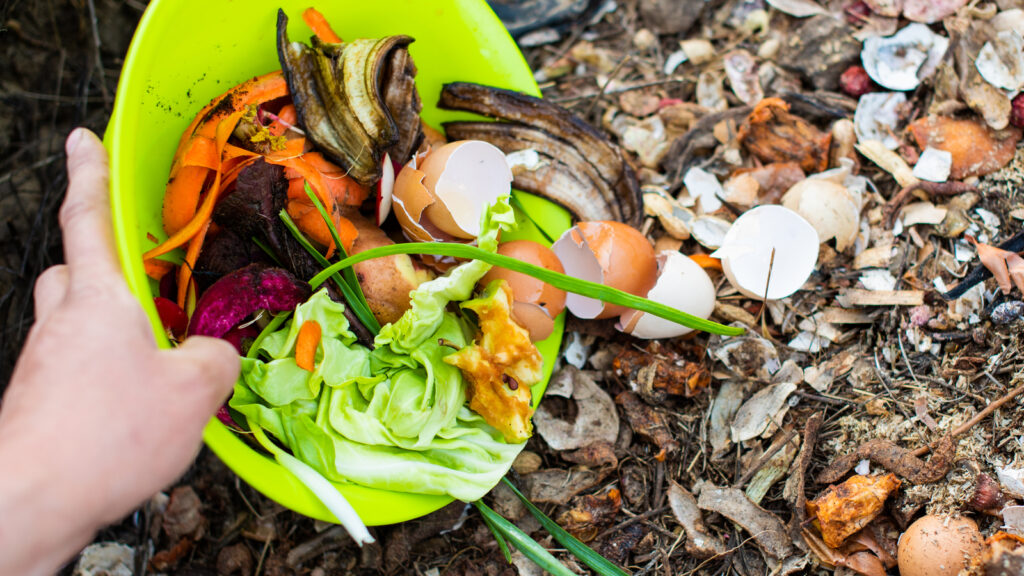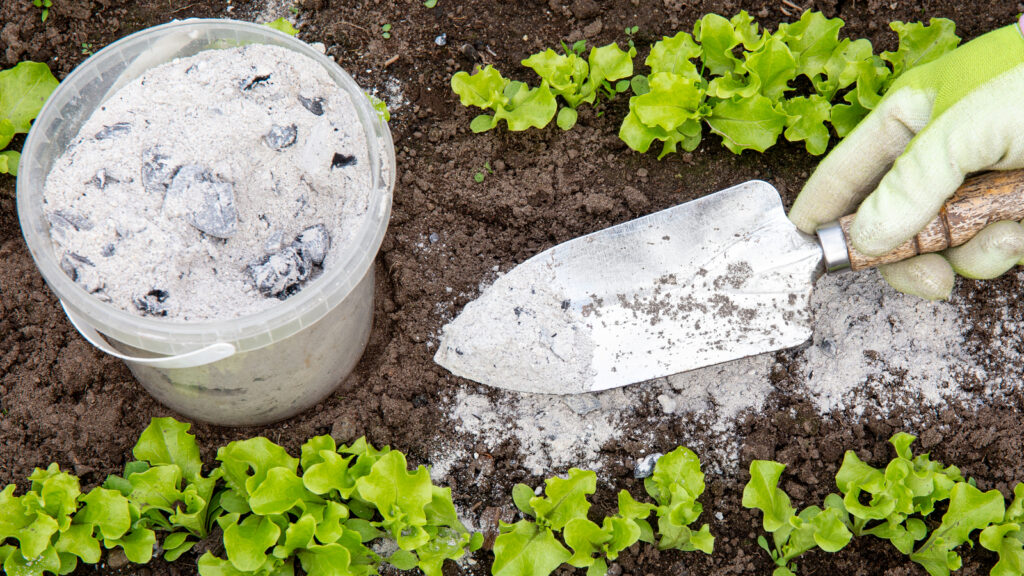This Wiley Post may contain affiliate link .
Share this post or pin it for later on !
To create a thriving vegetable garden , it ’s of import that your soil has enough nitrogen . Nitrogen is an essential nutrient for plant life growth and development . Without it , many plant life will not expand . Increasing nitrogen level in your garden can be specially helpful for sure plant .

Image Credit: Deposit Photos
Nitrogen assists in the production of protein necessary for the ontogenesis of plant prison cell . It also bestow to the production of chlorophyll , which devote leaves their vivacious green color and financial aid in absorbing other essential food like phosphorus and K . This , in turn , raise the plant ’s ability to produce peak and yield , head to more abundant harvest .
While it ’s possible to boost atomic number 7 floor using commercial-grade fertiliser , there are also raw strategies to enrich your soil with N . Here are the ways to increase the N in your garden naturally .
What is Nitrogen?
Nitrogen is a cardinal nutrient for industrial plant growth . It is find in the ambience and is essential for forming chlorophyll , the molecule that help plants convert sun into vim .
Nitrogen also develops other authoritative works molecules , include proteins and DNA .
Nitrogen is a major element of the soil . It is discover in organic matter , such as dead leaves and twigs , and it is let go of into the soil when these materials decompose . Nitrogen is also present in some mineral , such as limestone .

Reasons Your Plant Needs Nitrogen
Nitrogen plays a vital role in industrial plant growth and development . Here are a few reasons why your plant needs nitrogen :
How to Increase Nitrogen in Soil Naturally
While increase nitrogen levels in your soil using commercial-grade fertilizer app is possible , we favor to call nitrogen deficiency naturally .
Here are the ways to increase the N in your garden of course .
1. Add Organic Matter Like Compost
Compost , or compost manure , will release nitrogen into the ground as the cloth rot . A mellow - quality organic compost from a garden middle is a in force choice , or you canmake your own compostthroughout the yr at home plate with food andkitchen garbage .
Compost should be add by spreading a bed on top of the soil and then tilling it in . you could also work it into the top few in of the soil with a digger or rakehell .
Lastly , you may add it to the hole you dig out when you plant veg or incorporate it into asheet mulch gardenbed when you make it .

2. Grow Nitrogen-Rich Cover Crops
you may also growcover crops , such as alfalfa or clover , in your garden to increase nitrogen levels by nature . book binding crops are plants that are grow specifically to meliorate the caliber of the dirt . They are often used in agricultural orbit but also home gardens .
After a cover version crop has been allow to get for a few month , it is then chop and turned into the soil , where it decompose and releases atomic number 7 . This is a bang-up pick between seasons .
3. Grow Nitrogen-Fixing Crops
Another way to increase nitrogen in your garden is to plant atomic number 7 - fixing plants that have a symbiotic kinship with bacterium in the soil . The bacteria live on the plants ’ roots and convert nitrogen flatulency into a cast of nitrogen that flora can use . Some examples of N - desex plant include legumes , such aspeasand noodle .
Legumes merge with nitrogen - fixing bacteria in the dirt . This partnership benefits your garden by enriching the soil with N , making it better for growing other crops .
4. Spread Grass Clippings
skunk clipping from your lawn are an first-class nitrogen source if not process with chemicals . As a bonus , grass clippings can serve as mulch early in the time of year when spread over the surface of the garden between works . The nitrogen will phlebotomise as the grass decomposes .
5. Composted Manure
you’re able to use compost manure if you ’re ahomesteader , husbandman , or someone with animals on your prop . This nutrient - rich fabric is gain from your animals . While various types of manure exist , wimp manure boasts the highest N content , followed by horse and cow manure .
To secure its potency and safety for your garden , fresh manure should be composted or left to moulder for at least six months to a class before program program . If obtaining fresh manure is n’t viable , you’re able to handily purchase aged manure in bags from a garden center .
6. Old Coffee Grounds
mix in used Coffee Grounds into your soil is a great way to add nitrogen . Coffee Grounds decompose step by step and make space for aeration in the garden . This is specially neat if you drink coffee on a regular basis . This is a great manner torepurpose used coffee ground .
7. FIsh Emulsion
Addingfish emulsioncan aid with increasing nitrogen . This product is a N - fertile natural fertiliser that also contain other beneficial food . Fair warning : it may have a pretty strong , unpleasant feeling .
8. Blood Meal
A agile way to add nitrogen to your stain is by using a blood meal , which is dry out , pulverised creature blood from slaughter . It ’s packed with nitrogen and can boost your plants when sprinkled around them and watered . However , be aware that it might draw in animals to your garden .
9. Feather Meal
This is made from ground - up poultry feathers and is another slow - release nitrogen source . Apply it around your plants to gradually enrich the grease .
10.Wood Ash
woodwind instrument ash increases territory alkalinity , benefiting acidulent soils . Always cool the ash before employment andtest your soilfirst .
Clever Ways to Reuse Sawdust
How Much Nitrogen Does a Vegetable Garden Need?
The amount of N your garden needs will vary depending on the type of plants you are growing . Generally , plant harvested above the soil for their green ( not their fruits or origin ) thrive with healthy amounts of nitrogen – remember leafy greens like kale , chard , Spinacia oleracea , andlettuce . The areas of your garden where you will produce these vegetables should be specially nitrogen - deep .
In dividing line , vegetables harvest for tooth root or fruit ( carrots , white potato , tomatoes , eggplant , etc . ) may struggle if nitrogen tier are too high . However , most garden will thrive with around 40 parts per million ( ppm ) of N .
Soil Testing for Nitrogen
essay your grime is the best way to recite if it has enough N . you’re able to purchase a soil test kit out from your local baby’s room , gardening store , oronline .
These kits will usually hail with direction on shoot a sample of your filth and direct it to a science lab for testing . The test results will tell you your soil ’s nitrogen levels and other nutrients .
If your soil tryout designate that there is not enough N in your garden , do n’t vex ! There are several ways to introduce more nitrogen into the grime .

When should you NOT add Nitrogen to the Soil?
It is potential to total too much nitrogen to your territory . This can happen if you practice too much plant food or permit animal manure to sit in one smear for too long without incorporating it into the soil . Nitrogen can also accumulate in the soil if you do not rotate your crops annually .
Too much atomic number 7 in the ground can cause problems such as :
If you suspect your dirt is high in nitrogen , stop adding amendment that hold back nitrogen and plant vegetables that will draw it rather ( like leafy greens ) .

This will help bring grade back down over meter and is secure than endeavor to add up chemicals to balance out the atomic number 7 . you could also have your soil tested again to see if the levels have changed .
With a piffling effort , you’re able to easily increase the nitrogen degree in your garden soil and create a luxuriant , respectable environment for your plants to thrive ! Using innate methods , you could avoid the possible danger of commercial-grade fertilizers .
Happy development !









